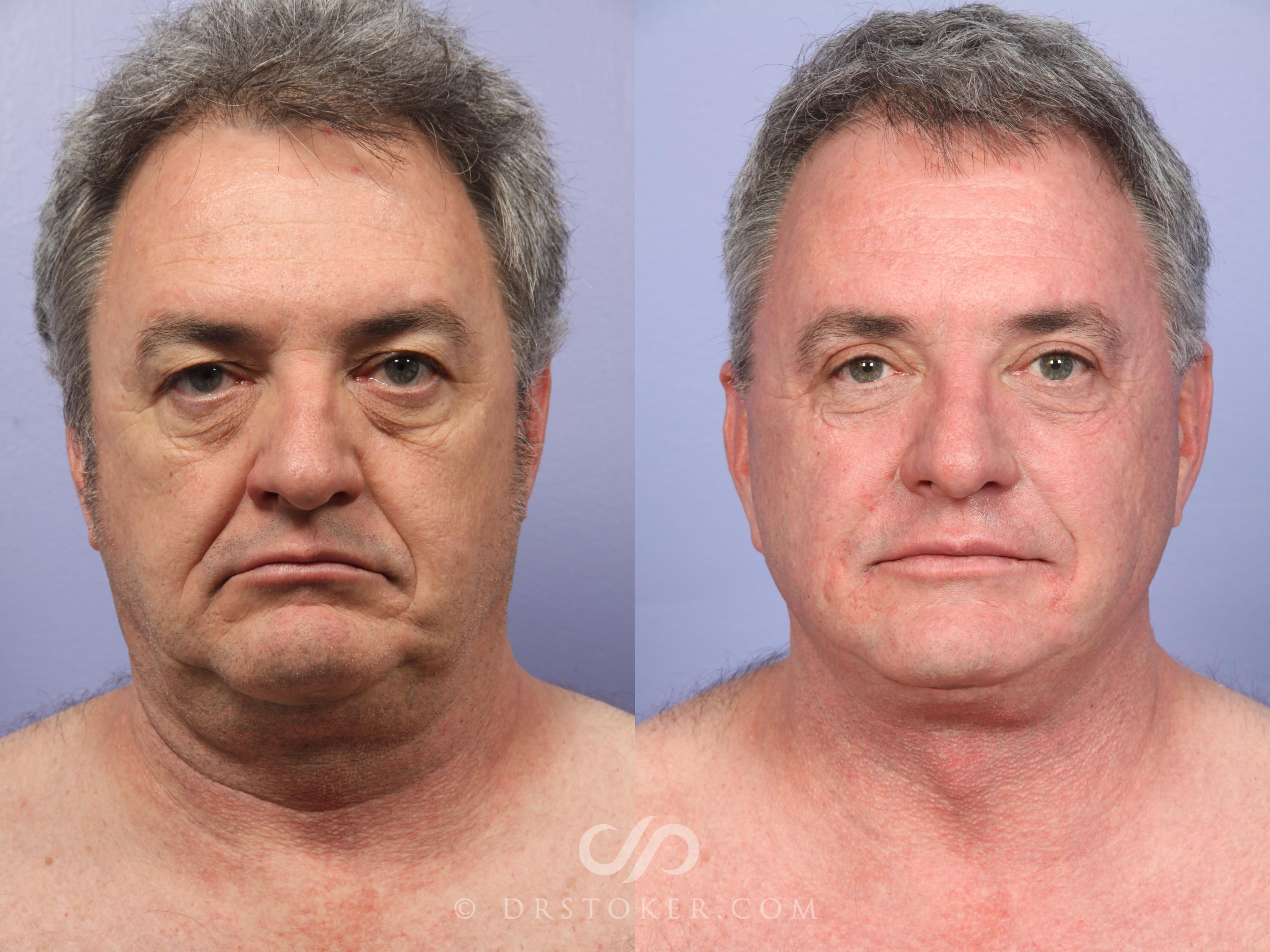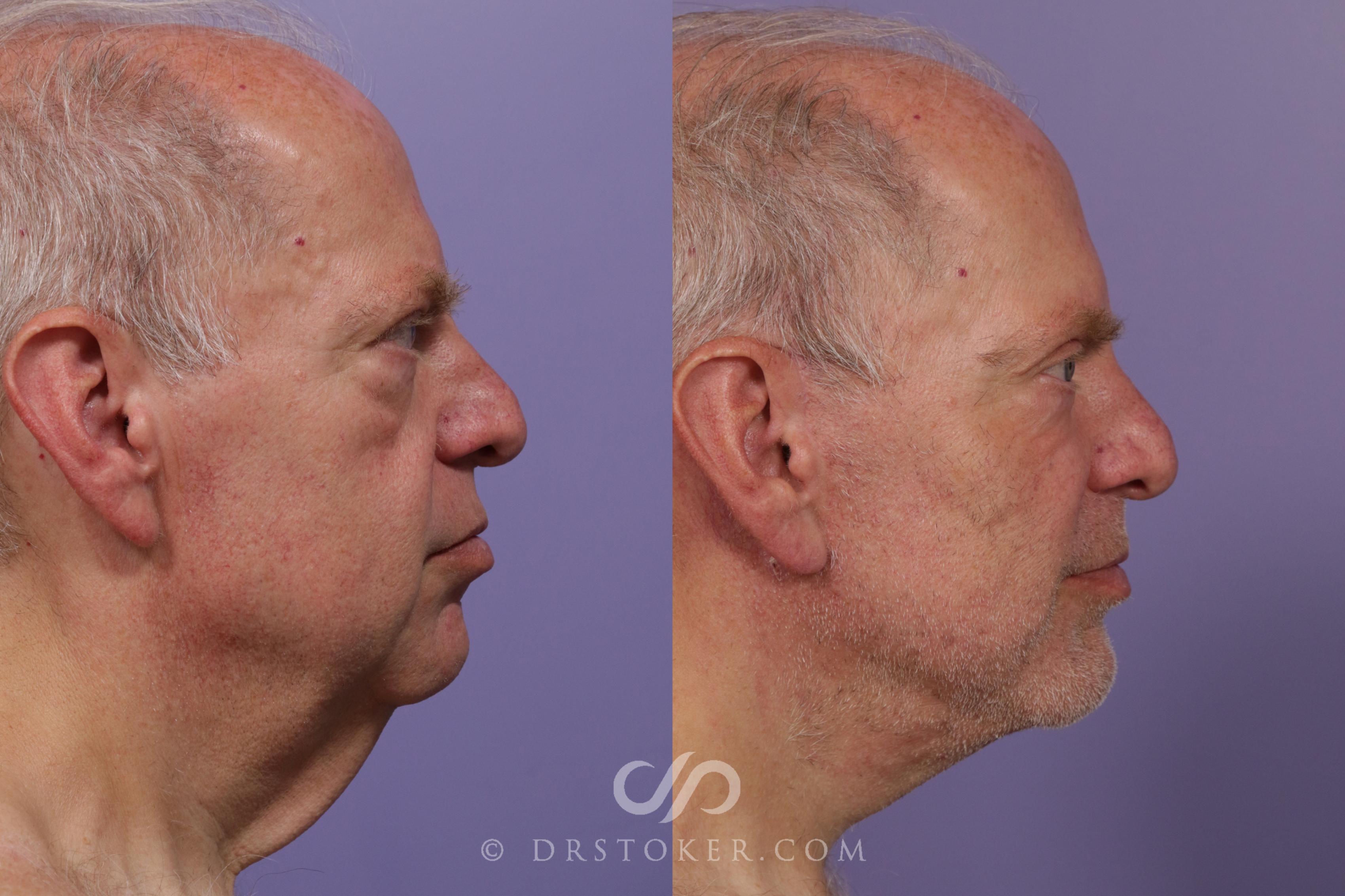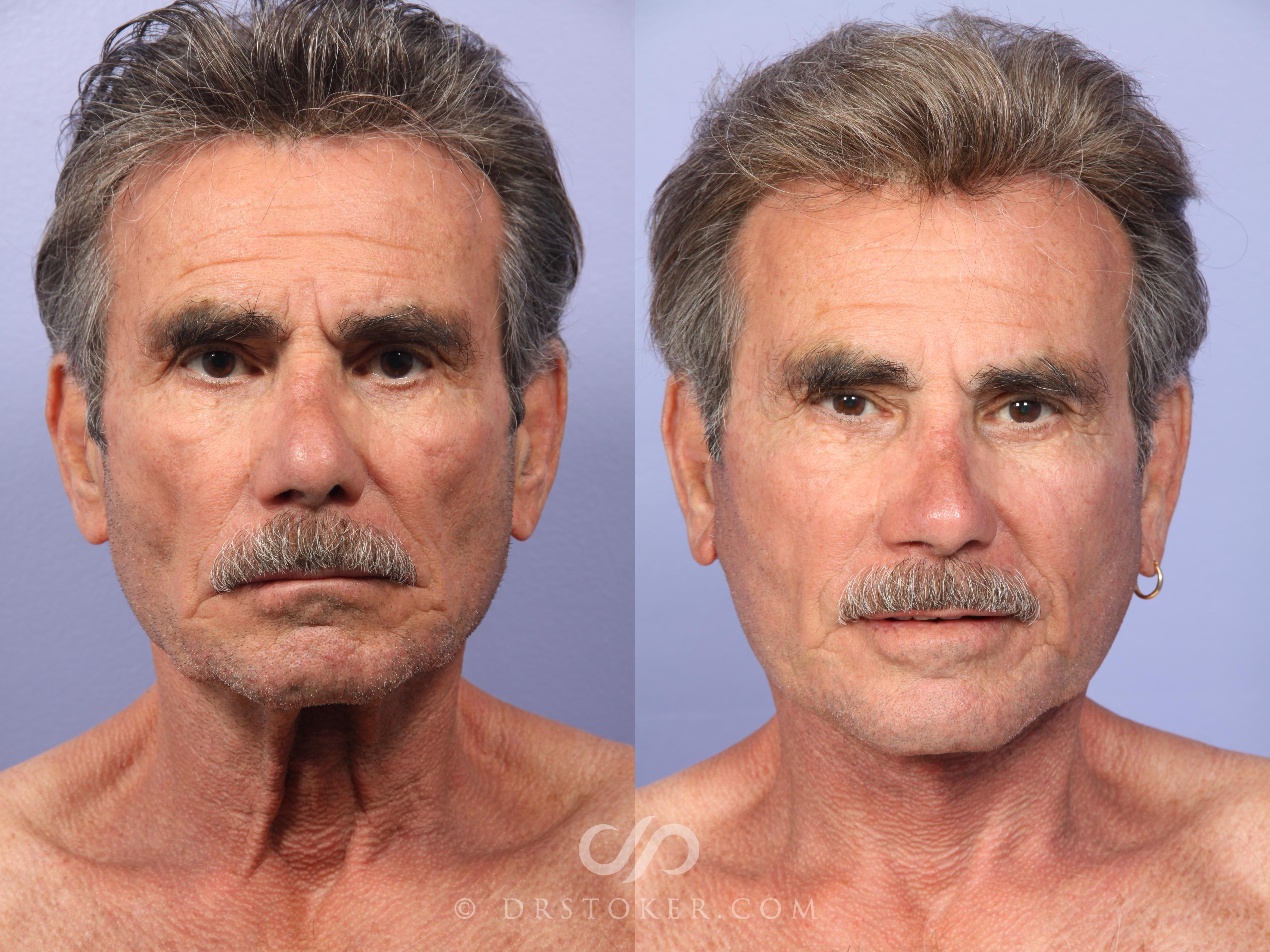Without question, men in Southern California feel pressure to maintain a youthful appearance that communicates masculinity. Aging takes its toll on the face, etching wrinkles and creating jowls that can make you look much older than you feel. Facelift surgery is one answer for Los Angeles men when performed by an experienced plastic surgeon who understands that the techniques used for male facelifts are different than those for female patients.
Men Are Increasingly Seeking Cosmetic Procedures
In a competitive job market and the age of social media, more men than ever are turning to cosmetic treatments to reverse signs of aging and maintain a vital, youthful look. Men now make up about 15% of the cosmetic surgery market, including facial plastic surgery procedures such as brow lifts, rhinoplasty, and facelifts.
Men, in general, are more comfortable getting nonsurgical tweaks, such as BOTOX® Cosmetic, dermal filler injections, or laser skin resurfacing. These can produce excellent results for the right patients but may not be appropriate treatments for patients with sagging skin and lost volume. The most effective, natural, long-lasting, and cost-effective treatment for facial aging remains a well-performed facelift and neck lift. Most patients enjoy their rejuvenated appearance for 10 years or more, especially when maintaining a healthy lifestyle and good skincare routine.
Many men add complementary procedures, such as eyelid surgery or a brow lift, to their facelifts to rejuvenate the upper face and minimize the number of operations needed.
How Facelift Surgery Impacts Perceptions Beyond Age
Not only can facelift surgery help men appear younger, research shows it can influence the way co-workers and acquaintances perceive them. In a first of its kind study, plastic surgeons at Georgetown University Medical Center found that when a man chose to have facial plastic surgery, it significantly increased perceptions of attractiveness, likeability, social skills, or trustworthiness. The study was published last year in JAMA Facial Plastic Surgery, a peer-reviewed journal.
What Makes Male Facelifts Different?
Men’s facial structure differs significantly from women’s, requiring a specialized surgical approach. For example, features typically thought of as more masculine include prominent cheekbones, a square jaw, and a well-defined chin. Men generally have thicker skin, stronger bone structure, and distinct facial hair patterns, all of which play a role in facelift planning. or achieving results that look seamless and appropriate for a male face.
Tailored Techniques for Male Facelifts
Facelift surgery for men requires a precise approach that aligns with male facial anatomy and aesthetic goals. Among these methods, the deep plane facelift and tailored neck and jawline enhancements are two of the most effective strategies
The Role of the Deep Plane Facelift
One of the most effective techniques for male facelifts is the deep plane facelift. Unlike traditional facelifts that primarily tighten the skin, this advanced method focuses on repositioning the underlying muscles and tissues for a more natural, long-lasting result. By lifting and restoring these deeper structures, the deep plane facelift avoids the overly tight or “windblown” appearance that many men want to avoid.
Addressing Neck and Jawline Concerns
For many men, a key motivation for seeking a facelift is to improve the jawline and eliminate sagging in the neck. A well-defined jawline is a hallmark of masculinity, and a facelift can sharpen this area by removing loose skin and repositioning tissue. In some cases, combining a facelift with a neck lift or other complementary procedures ensures comprehensive rejuvenation.
By using tailored techniques like the deep plane facelift and addressing specific concerns such as the jawline and neck, facelift surgery for men delivers balanced, natural-looking results.
Key Considerations for Male Facelift Surgery
Planning a facelift involves more than just choosing the right technique—it’s also about understanding key factors unique to male patients.
Incision Placement and Scarring
Scarring is a common concern for men undergoing facelift surgery, especially those with shorter hairstyles or receding hairlines. Strategic incision placement is essential to keep scars discreet. I carefully plan incisions to follow natural creases or hide them along the hairline, ensuring they blend seamlessly with your skin.
Managing Recovery
Recovery from a male facelift can differ slightly from what women experience. Men’s thicker skin may take longer to heal, and managing bruising or swelling discreetly can be a priority for those looking to keep their procedure private. I often recommend timing your surgery to coincide with vacation or downtime so you can recover fully before resuming daily activities.
With careful planning and attention to factors such as incision placement and recovery timelines, male facelift surgery can provide natural-looking, discreet results.
Real Results: Male Facelift Before & After Photos
Seeing is believing when it comes to facelift results. These photos showcase how a well-executed facelift can restore a youthful, natural appearance while preserving the patient’s masculine features.
Schedule Your Consultation
Men considering facial plastic surgery travel to our Los Angeles-area plastic surgery practice from throughout Southern California and the U.S. To learn if you’re a good candidate for our Traceless Facelift or one of our many other surgical or non-surgical treatments, please request a consultation online or call our practice at (310) 300-1779.





Leave a Reply